UMMC accelerates drive for diversity in health care careers
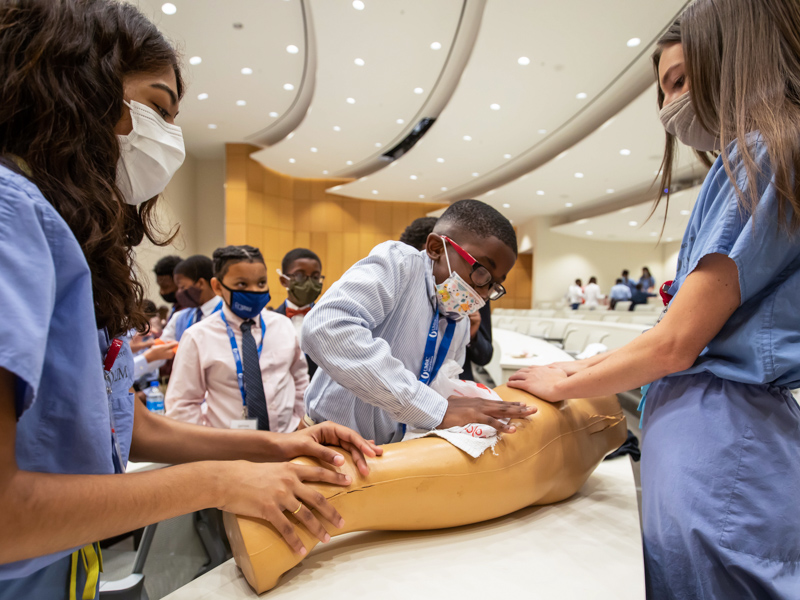
On the last Saturday morning in June, when many kids his age were still dreaming in their beds, Brandon Roberts was awake and wearing his dream: a white coat, the kind that medical students wear.
“It felt really good,” said Roberts of Byram, a rising 10th grader, “like this could be the future.”
He was one of around 50 African American males, ages 10 to 14, who spent much of that Saturday wrapped up in an image of their future selves, getting their picture made in the iconic white coat, and discovering what it would take to put on one like for real one day.
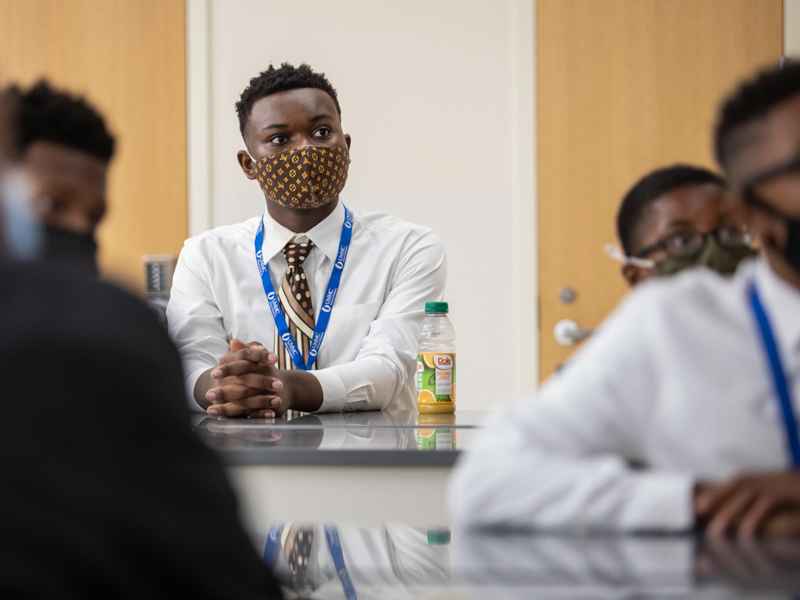
From as far away as Greenville and Gulfport, they traveled to the School of Medicine at the University of Mississippi Medical Center for the second session of the first-ever Black Men in Healthcare Empowerment Summit – one of this summer’s three like-minded events; another 45 or so youngsters had shown up for the summit’s first shift the Saturday before – and many more had to be turned away.
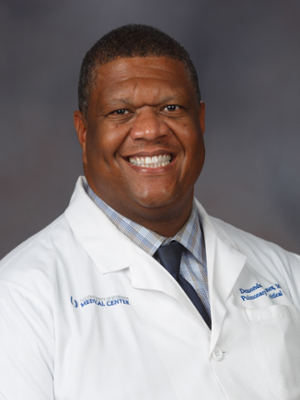
“The response was so amazing, we had to hold it [the summit] two different weekends,” said Dr. Demondes Haynes, associate dean for Medical School Admissions at UMMC.
“We had 300 on the waiting list,” said Haynes, also professor of medicine, pulmonary and critical care. “Once registration began, all the slots were filled within two days. It was so encouraging.”
‘THAT’S WHEN I KNEW’
Less encouraging are the numbers of African American students enrolled in the nation’s medical schools: For instance, the number of Black men admitted to medical school dropped over the past four decades, from 3.1 percent in 1978 to 2.9 percent in 2019.
In response, the Medical Center, using funds from the IMPACT the RACE grant, organized practically back-to-back-to-back events to address shortages of groups underrepresented in medicine; the two other programs are:
- PROMISE (Promoting Recruitment Opportunities in Medicine with Individual Study Experiences), held June 15-June 18, for college students, who “learned what a day in the life of a medical student is like,” said Dr. Dan Coleman, medical school outreach director.
- The upcoming UMMC INSIGHT Summer Enrichment Program, July 12-July 30, for African American, Hispanic, Latino and Native American high school students considering careers in medicine.
Sandwiched between PROMISE and INSIGHT, the Black Men in Healthcare Empowerment Summit appealed to the youngest group, middle-schoolers.
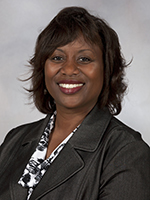
“That’s the age when students usually decide to be serious, or not serious, about academics,” said Dr. Loretta Jackson-Williams, professor of emergency medicine and vice dean for medical education.
It offered another difference, too, she said: It embraced healthcare professions beyond medicine to include dentistry, nursing, occupational therapy and physical therapy.
“We know everyone won’t go to medical school,” Haynes said.
Its conception fell, more or less on Super Bowl Sunday in February, during halftime, when medical student Eric Lucas Jr. of Ocean Springs tore his gaze from The Weeknd to brainstorm with his friend and classmate Akeelein J. “A.J.” Forrest of Grenada.
Lucas’ inspiration was a recent Zoom panel discussion on diversity led by Dr. Dale Okorodudu, founder of Black Men in White Coats; its mission: to push up the number of Black men in medicine.
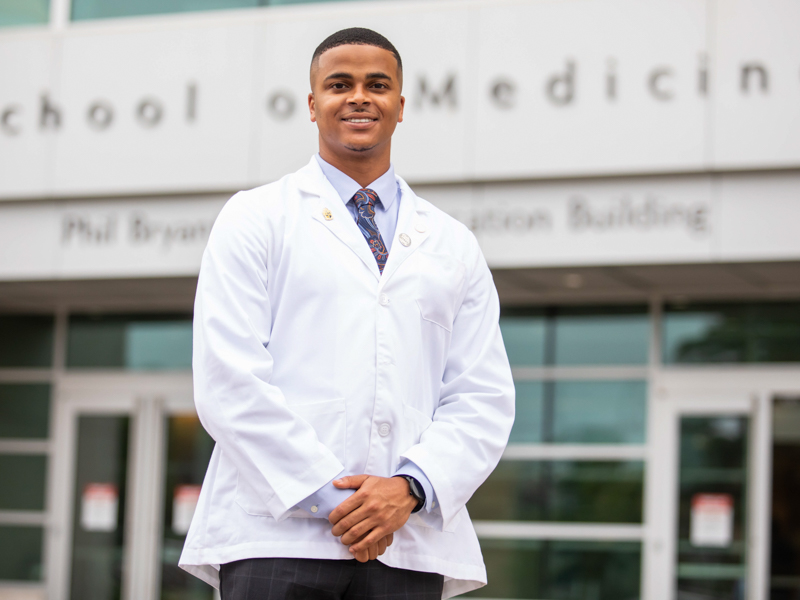
“It was a call to action,” said Lucas, who is aware of his School of Medicine’s numbers, although, compared to the previous two years, enrollment for his Class of 2024 reflects an improvement: 17 African American students, nine men and eight women, out in a class of 167, or about 10 percent.
Still, Mississippi’s population is around 38 percent African American. For the Class of 2022, seven of the 10 African American students enrolled are men; the Class of 2023 has nine African American students, but only three are men.
“Many African American kids have experiences that discourage them from going into medicine,” Lucas said. “They can feel lost in the system. And when you have no African American doctors in your community, you may have the feeling that you are limited in what you can achieve in life.
“So we want to introduce these kids, at an early age, to these health professions and to options other than sports and entertainment. They come through the medical school door and we show them that they belong here, that they look good in a white coat and stethoscope.”
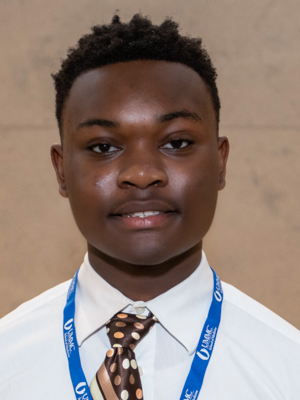
All had their photos made wearing a coat, and Brandon Roberts, who turns 15 in August, enjoys that picture of himself. Still, he wasn’t sure he wanted to be a health care professional until he helped take care of two of his relatives, victims of strokes.
“That’s when I knew. It was the joy of helping people and, through that, getting a blessing from God,” he said as he stood in the School of Medicine lobby. “Coming here today, I see it as the perfect place for my future career.”
‘YOU CAN’T DROP THESE’
For students with aspirations like Roberts’, often there aren’t many mentors around. Not so with Lucas, who has had a powerful role model at hand: Dr. Eric Lucas Sr.
A guest speaker for the June 26 summit, Lucas’ dad regaled his audience with screen-projected images of patients’ snake-bitten limbs, lacerations and a monumentally dislocated ankle.
During a demonstration, Lucas Sr., an assistant clinical professor of emergency medicine and critical care at the University of South Alabama, also let a 10-year-old or two perform ultrasounds on a mannequin, and offered everyone a lesson in finance.
“You can’t drop these,” he said, holding up a transducer. “They cost about $10,000 apiece.”
Also for the edification of the young attendees, he passed the ultrasound transducer over the eye of a volunteer: Eric Lucas Jr.
Like the younger Lucas, summit co-organizer A.J. Forrest had a valued role model in an African American physician: School of Medicine alumnus Dr. Katrina Poe who became staff physician at Forrest’s alma mater, Mississippi State University, three years ago.
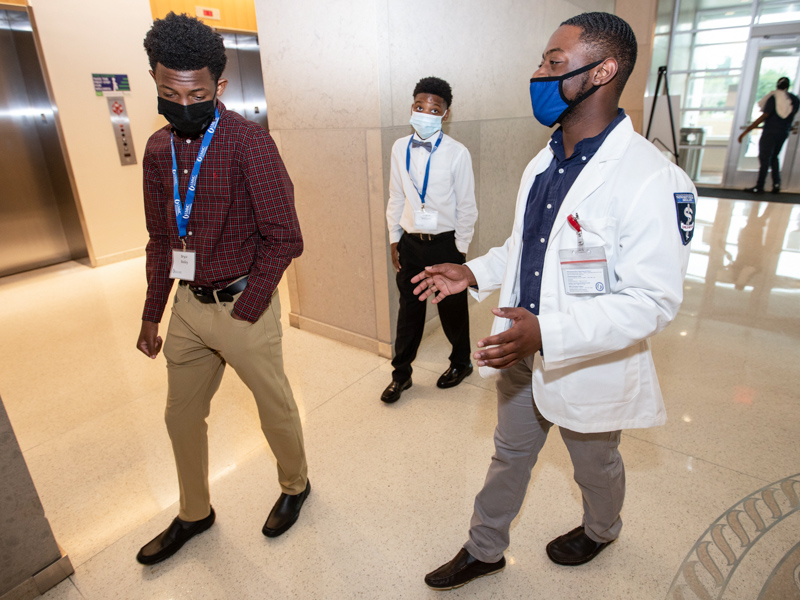
“She knew my family history and mentored me when I was at Mississippi State,” Forrest said. “It was very encouraging for me, and I hope, in the same way, we can provide some encouragement to these kids here. We want this to snowball and inspire others to reach out and hold their own events.”
The truth is, said his classmate and summit tour guide, Ivanna Adams-Nelson of Clinton, “something like this doesn’t really exist in a lot of communities – the opportunity, at this age, to see yourself this way.
“I believe the kids who have been able to attend are very lucky. And to see their reactions is exciting for me. They have so many questions, like: ‘Can I do this and sports, too?’”
Other questions, overheard: “Are the tests hard?” “Are you trying to find a cure for cancer?” And, during a tour of the wet lab: “Are those pig brains or human brains?”
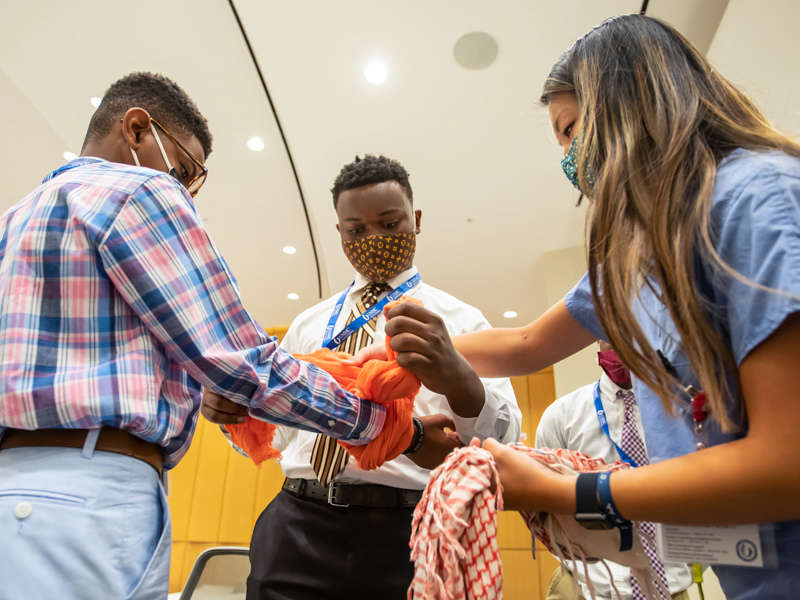
These potentially budding physicians, nurses, dentists, OTs and PTs learned how to tie tourniquets, stop bleeding (no real fluids were shed), take blood pressure, use crutches and treat sports injuries – a popular topic – and more.
Demonstrations and panel discussions featured representatives from all of the health professions listed above. Among the physician panelists was Haynes, a Louisville native who had played high school football.
‘THEY CAN ALWAYS COME BACK’
“Some of the students asked me if I wish now that I had continued in sports instead of becoming a doctor,” Haynes said. “I told them I loved football and still do. But one of the reasons I played was to get a scholarship to be able to afford to go to school.”
Still, he depended on academic scholarships to fund his education at the University of Mississippi before graduating, in 1999, from this School of Medicine. Not until he was in medical school did he meet an African American physician.
But, if any of the 100 or so adolescents attending the summit had never met a Black doctor before, that changed when they walked into the School of Medicine. Less than a week earlier, that was also the case with the 28 rising college juniors and seniors attracted by PROMISE.
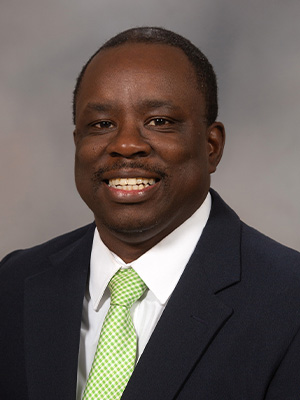
“[PROMISE] students come from the same backgrounds as others who are underrepresented in medicine, and that includes in the areas of financial status, first-generation college students, ethnicity and more,” said Coleman, the outreach director.
“They left knowing the quality of education the School of Medicine can offer. They received free study materials for the MCAT [Medical College Admission Test], we created for them a study plan and we make sure they’re on track to take the exam.
“PROMISE is providing some opportunities for these students that they have never seen before.”
And it has made an impact already, Haynes said. “One of the students said she had never intended to come to medical school here, but changed her mind after attending PROMISE.”
In fact, the PROMISE attendees are under no obligation, “contractually,” to enroll in this medical school, Jackson-Williams said.

“But we try to sway them as much as possible. We follow up with them throughout the year and continue to support them.
“But if they do go elsewhere, I don’t think it’s a bad idea to have supported them, because it’s good for this state when that person is identified as being from Mississippi.
“And they can always come back. So I want them to have a great experience with this school.”
PROMISE is an early assurance program for the School of Medicine and the only one run by the school. Others are the Mississippi Rural Physicians Scholarship Program and the Professional Portal Program.
PROMISE, MRSP and PPP champion groups underrepresented in the medical professions and who are “socio-economically challenged,” Jackson-Williams said. “Students with the potential to be successful and who meet certain requirements are assured a seat in the medical school.”
With only 165 or so seats available for each entering medical school class, those spots are hard-won. To help demystify the process and motivate more underrepresented groups to go for it, INSIGHT was born.
‘EVERY CHAIR IS FIRED UP’
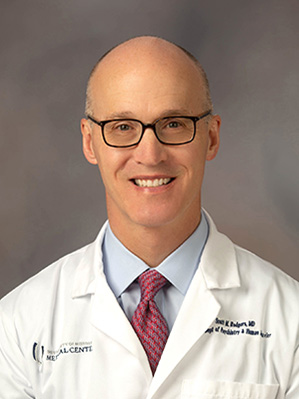
It grew from an idea that arose during an executive faculty meeting, said Dr. Scott Rodgers, chair of psychiatry and human behavior. “We were asked to think about what we could do to further the diversity of the student body. UMMC is doing good work, but we know we can do better.
“We will have a stronger and more effective health care system when the diversity within the student body better reflects the diversity of our state and this country, and we’re not there yet.”
At Rodgers’s urging, three residents stepped up to plan the three-week program for high school students, ages 16 to 18: Dr. Joshua Trull, Dr. Perry Morgan III and Dr. Jonathan “Dustyn” Baker. From the beginning, Dr. Alissa Willis, associate professor and chair of neurology, offered her help as well.
“It was fun coming up with topics, things we wished we had known when we were medical students,” said Trull, whose hometown is Linden, Tennessee.
INSIGHT’s high school students will tour the Gross Anatomy lab, where medical students and others dissect cadavers and memorize the intricacies of the human body.
They will attend what is called an “organ recital,” and examine an actual liver, kidney and heart to learn how each works and is affected by specific diseases.
“Dr. Shannon Pittman [professor and chair of family medicine] will lead a suturing lab demo,” Trull said. “We’ll also do morning reports – go over actual patient cases – and other activities in a hospital or outpatient clinics.
“Some mornings, we’ll do workshops on how to handle an interview, creating and maintaining a CV and resume.
“Both my parents were teachers,” Trull said, “and I always thought if I hadn’t gone into medicine I would have been one, too. It’s been really rewarding to work on this and meet this need of mine to teach. When Dr. Rodgers brought it up, it seemed like a perfect fit.”
Many other UMMC departments are contributing to INSIGHT – neurology, ophthalmology, radiology, pathology, anesthesiology, preventive medicine, pediatrics, dermatology, emergency medicine, neurobiology and anatomical sciences and more.
“Every chair is fired up about this,” Rodgers said.
Around 50 students applied, and the INSIGHT selection committee accepted 20, based on GPA, extracurricular activities and their responses to questions that measured their enthusiasm for and curiosity about medicine and improving their community.
“Our hope is that this won’t be the last year for INSIGHT,” Trull said, “and it will continue to teach young students how to become a doctor.”
At best, that instruction will take place one day in this School of Medicine, Rodgers said. “We hope the students will give strong consideration to attending medical school at UMMC.
“But even if they decide to go to other medical schools, they will bring more diversity to the profession. And the whole country will benefit.”

